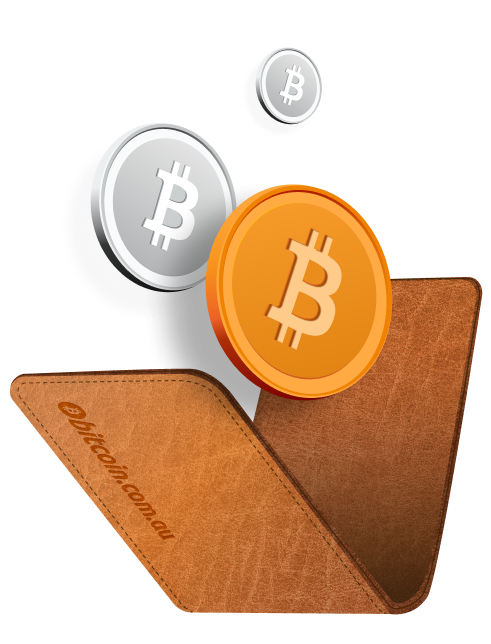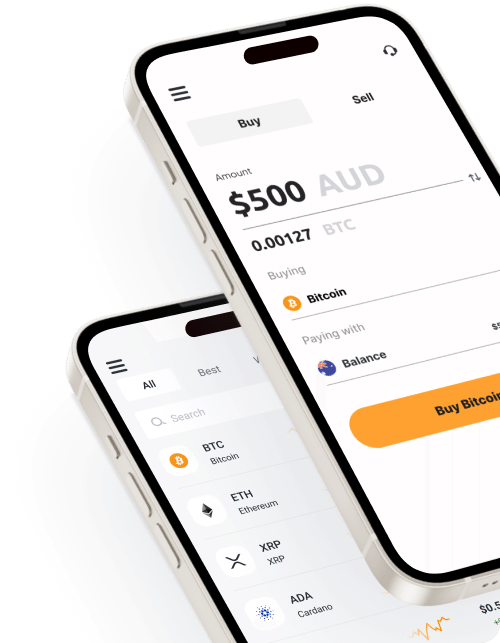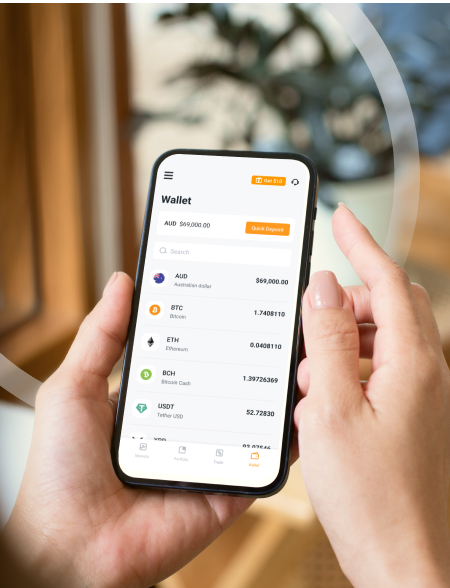One wallet for all your coins
Keeping your wallet secure
We’ve kept over 450,000 Australians’ assets safe over 10 years, with zero security breaches.
-
Enterprise level security
We hold your crypto assets in ultra-secure offline cold storage, protected in underground vaults. -
Segregated funds
Customer funds are never mixed. We maintain strict separation of all client assets, guaranteeing their availability when you need them.
-
Sole custodian
bitcoin.com.au is the sole custodian of all crypto assets held on our platform. We adhere to industry best practices and never lend, trade or reinvest your assets.
Why do I need a wallet?

What are cryptocurrency wallets?
If you plan on storing, using or buying Bitcoin or any cryptocurrency, a wallet is a necessity. In this guide we’ll discuss the types of wallets and why you may choose one over the other. As Bitcoin and other cryptocurrencies are digital assets, the way they are used and stored differs from traditional currencies. A crypto wallet should be looked at as a way to access the cryptocurrency you own, as well as a way to send and receive it. Wallets can be on your mobile device, on your desktop, a physical hardware device that you can carry with you or even a piece of paper.
Like all crypto wallets, a wallet has both a private key and a public address. The private key is what you use to access your public key or address and interface with the cryptocurrency network. This can simply be thought of as your pin and is most commonly presented to the user as a 12-word passphrase. These words, or pin, will mean you can access your cryptocurrency wallet from anywhere. If you lose your wallet, you can use your passphrase to recover it. The public key or address can be used to send and receive Bitcoin or other cryptocurrencies between parties.
Exchange wallets
While storing your cryptocurrency on a trusted exchange wallet is highly secure, a common point of failure for most users is, unfortunately, due to personal negligence or social hacking. There are a lot of scammers in cryptocurrency who attempt to trick people into losing their funds through things like phishing attacks and fake websites.
It’s important to choose a trusted platform to buy Bitcoin and other cryptocurrencies. bitcoin.com.au is a well-established, highly secure Bitcoin exchange. We guarantee your Bitcoin funds are completely safe when they are stored on our exchange. For many users, storing Bitcoin and other cryptocurrencies on a trustworthy exchange is a far better option for those who don’t want the sole responsibility of keeping their assets safe.
Other types of wallets
Mobile & desktop wallets
Physical hardware wallets
Paper wallets
Using a wallet outside bitcoin.com.au?
Create backups of your private keys
Never give your private keys to anyone
Hardware wallets
Mobile & desktop wallets
Get your free wallet on bitcoin.com.au

